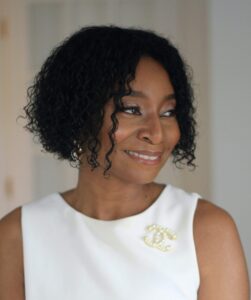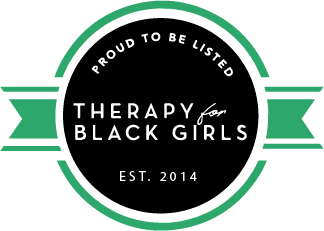Regardless of how Black women actually show up, in US workplaces (and other settings) Black women are more often demonized and written off as ‘Angry Black Women’, when compared to others who express the same level of (or more) emotion. This implicit bias has severe adverse implications for the health, careers, and economic potential of Black women. This blog explores the role that depression, namely irritable depression, may play in these dynamics and how irritable depression goes unnoticed and unaddressed in Black women.
Hi, I am Dr. Iman Hypolite, a double board certified Johns Hopkins trained psychiatrist with over 20 years of experience, and I help professional women of color THRIVE! I specialize in treating high functioning depression (including irritable depression), high functioning anxiety, and professional burnout in high achieving women of color.
Irritable Depression
Let’s talk irritability. Irritability is defined as getting easily frustrated, annoyed, and impatient. In physical health, a part of your body that feels irritated is accepted as a sign of pain, not such with mental health though. Let’s explore this.
Irritability is one of the defining symptoms of major depressive disorder. It is often clinically referred to as irritable depression. Irritability is also a core and defining symptom of generalized anxiety disorder and Post Traumatic Stress Disorder (PTSD). Despite the fact that irritability is a core symptom of depression, anxiety, and PTSD, people and most concerning, clinicians rarely acknowledge it as such.
Ignoring irritability has health, relational, and societal implications.
Recent studies “validated” what Black and other culturally competent mental health clinicians have known for years, and that is that irritability is a more common manifestation of depression and anxiety in Black women.
Because irritability is often not recognized as a mental health symptom, depression, especially irritable depression, is often undiagnosed, under diagnosed, and misdiagnosed in Black women.
Irritability as a fight or flight response
Irritability in Black women is a remnant and byproduct of 400 years of oppression and systemic racism, where Black women were the most vulnerable due to the following conditions and then some: brutal labor, recreational and institutionalized rape, forced breeding, forced childbearing, forced nursing of other women’s babies, their own babies stolen from them, beatings by men and women, macroaggressions by White women for the negative and undesired “attention” that Black women received by White men, and the list goes on. In the face of this, Black women had to figure out how to fend for themselves, their children, and their entire families.
Let’s use our imaginations for a moment. What kind of coping mechanisms do you think Black women slaves had to develop in order to survive this? What do you think the lessons that Black mothers had to share with their daughters looked like back then? How do you think these lessons evolved as they were passed from one generation to the next? What do you imagine the remnants of those very same lessons look like today, in light of the fact that remnants of slavery and oppression exist even now? I challenge you to think about this.
What if irritability was understood to be a remnant of intergenerational and perhaps personal trauma?
What if irritability was seen as a way that many Black women express overwhelm, fear, helplessness, despair, hopelessness, sadness, stress, and hurt?
What if irritability was seen as a mental health symptom rather than a character trait?
Remember, no one is born irritable. Irritability is NOT a character trait. It is a symptom of a larger issue. Black women who are walking around irritable and angry are not irritable and angry for no reason. There’s always a reason behind every emotion.
Have you ever taken a moment to caringly ask a woman you have deemed to be an “angry Black woman” if and why she may be angry?
What if irritability were met with empathy, compassion, and concern?
For example, what if a Black woman you perceive as irritable were, in a private one on one setting, caringly approached as such:
- “Is everything ok?” (Start broadly with her and then get more specific.)
- For work a relationship: “You are a valued member of this team.” For a personal relationship: “I love/care about you.” Followed by, “You do not seem like yourself. You seem on edge. Are you ok?”
- “Do you need anything?”
- “Can I/we help with something?”
- “If you need to talk or express concern or need help with anything, please know that you can come to me.”
- Then, give her space and let her respond accordingly.
The trick for this to work is that one actually has to care. If you attempt this and your motive is not sincere concern, this will show…and will not work.
Black women need people to actually care about and for them.
People outside and even more painfully within the Black community, often critique Black women for being intimidating, angry, masculine and hard. Do you ever wonder why and what is the basis for this?
Regardless of how Black women actually show up, in US workplaces (and other settings) Black women are more often demonized and written off as ‘Angry Black Women’, when compared to others who express the same level of (or more) emotion. This implicit bias has severe adverse implications for the health, careers, and economic potential of Black women.
In the increasing public discourse (*cough judgment*) about Black women, it is important to recognize that all women who are perceived as angry (or irritable) or not actually angry or irritable. There’s also bias, folks.
Psychological Safety for Black Women
Psychologically safe spaces need to be created in order for Black women to feel safe enough to be more vulnerable, or in other words, softer or more feminine.
Black women need to be shown more grace, humanity, and understanding.
Once safe spaces are created, Black women will need people to have patience and know that it will take time for Black women to shed 400 years of oppression and the resulting adaptive defenses that have been necessary to survive being the most vulnerable and lowest rung in America’s deeply embedded and still prevailing caste system.
Once these safe spaces are established, Black women will need to embark on a journey and practice of vulnerability, learning to ask for and receive help, and to self-soothe and problem solve in healthy ways in the event help is not given.
This is an example of how we can collectively heal and spread love!
If you are a Black woman leader in need of support along your healing journey, please visit DrHypolite.com to learn about how I can help.
Black women, know that you are seen, loved, and valued.
💚Be well, be whole, and be healed, lovelies!💚
References:
-Harvard Business Review’s 2022 article about this: https://hbr.org/2022/01/the-angry-black-woman-stereotype-at-work
-NYU 2022 Study about Variations in the presentation of depression in Black women: https://www.nyu.edu/about/news-publications/news/2022/december/depression-Black-women.html
Curious about Dr. Hypolite’s work as a holistic psychiatrist?
How Dr. Hypolite Can Help With Irritable Depression
Dr. Hypolite is a preventive and integrative, Black woman psychiatrist. She differs from most psychiatrists, in that she specializes in working with clients who have subclinical depression and anxiety. She does not wait for people to develop impairing mental health illness, and she believes in intervening sooner, to preserve and enhance their productivity and quality and life.
Dr. Hypolite believes that it is not wise and frankly does not make sense to wait to treat depression until it gets clinical and causes significant impairment. Once impairment occurs, more costly and in many cases, higher risk treatment is needed in order to relieve symptoms. Dr. Hypolite’s services are preventive and designed with this in mind.
Dr. Hypolite understands the unique challenges that high achieving Black women face, from the pressure to be a superwoman to the stigma surrounding asking for help and seeking out mental health in the Black community.
Dr. Hypolite creates a safe and understanding space for Black women leaders to heal and thrive!
Dr. Hypolite specializes in culturally specific and attuned care and support that is tailored to your unique experiences as a high achieving woman of color, providing you with the tools and support to overcome obstacles and achieve optimal health and wellness.
Our comprehensive mental health and wellness services include:
- Psychiatric and Wellness Evaluations,
- Medication and Supplement Management (when needed and desired)
- Therapy and Coaching,
- Wellness Plans that include individualized, whole person strategies to help you achieve optimal health and wellness
Dr. Hypolite’s clients benefit from personalized guidance that empowers them to break free of stress, burnout, anxiety, and depression, allowing them to live lives full of joy, balance, peace, purpose, and fulfillment. With Dr. Hypolite’s expert guidance, you too can unlock your true and full potential.
Remember, seeking help is not a sign of weakness but a courageous step towards your well-being.
You deserve to prioritize your mental health!
If you are ready to take control of your mental health and wellness and embark on a transformative journey towards healing and a greater sense of peace, balance, and fulfillment, click here to request a consultation!






